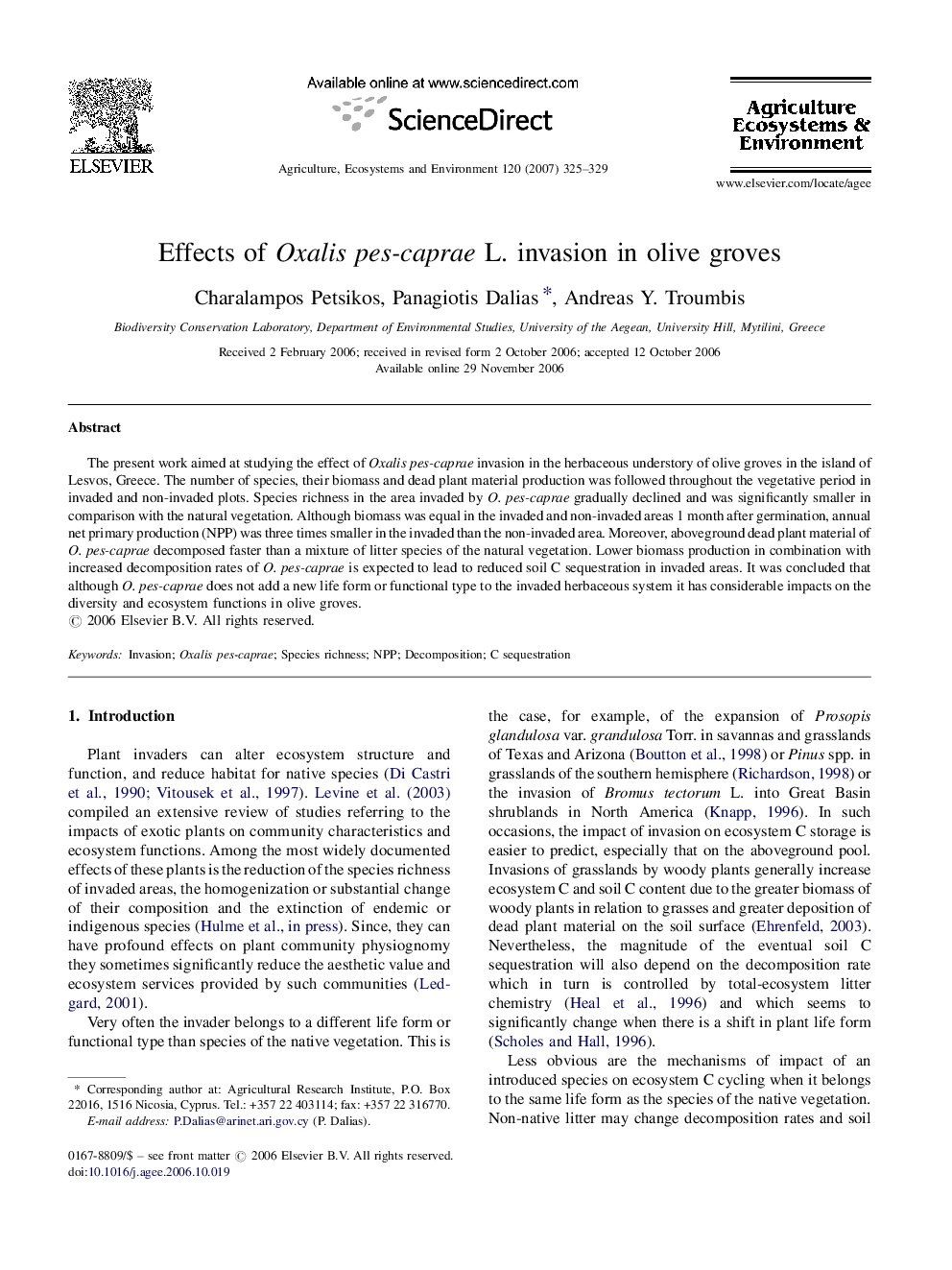| Article ID | Journal | Published Year | Pages | File Type |
|---|---|---|---|---|
| 2415613 | Agriculture, Ecosystems & Environment | 2007 | 5 Pages |
The present work aimed at studying the effect of Oxalis pes-caprae invasion in the herbaceous understory of olive groves in the island of Lesvos, Greece. The number of species, their biomass and dead plant material production was followed throughout the vegetative period in invaded and non-invaded plots. Species richness in the area invaded by O. pes-caprae gradually declined and was significantly smaller in comparison with the natural vegetation. Although biomass was equal in the invaded and non-invaded areas 1 month after germination, annual net primary production (NPP) was three times smaller in the invaded than the non-invaded area. Moreover, aboveground dead plant material of O. pes-caprae decomposed faster than a mixture of litter species of the natural vegetation. Lower biomass production in combination with increased decomposition rates of O. pes-caprae is expected to lead to reduced soil C sequestration in invaded areas. It was concluded that although O. pes-caprae does not add a new life form or functional type to the invaded herbaceous system it has considerable impacts on the diversity and ecosystem functions in olive groves.
